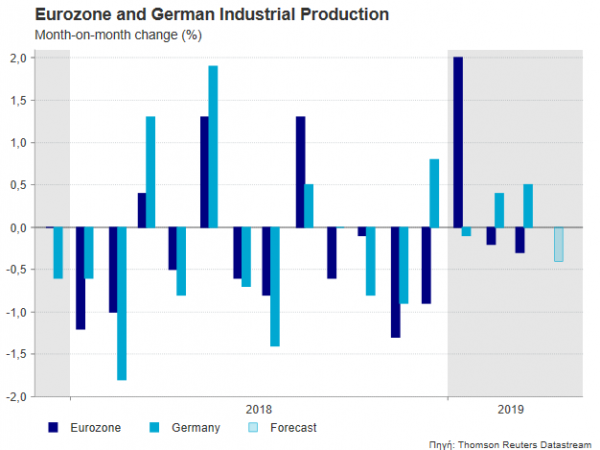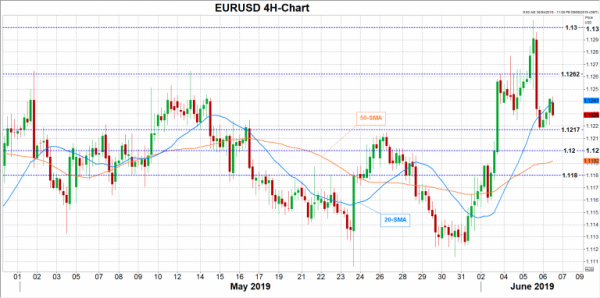Despite GDP growth rebounding in the first quarter, industrial output and trade data out of Germany at 0600 GMT on Friday are projected to show that the biggest EU economy is not out of the woods yet.
In the first three months of the year, the German economy which stagnated at the end of 2018, expanded by 0.4% q/q and in line with forecasts. Although the stats flagged that the export-oriented economy is resilient enough to global challenges such as the tough US trade protectionism and the Brexit crisis, analysts believe that the growth-supporting business sector is still fragile. Specifically, industrial output is said to have retreated by 0.4% month-on-month in April following two consecutive months of gains. Exports and imports of goods are also estimated to contract by 0.9% and 0.2% respectively in the same period, reducing the trade surplus by 1.4 billion euros to 18.6bln.
Weak manufacturing PMI readings in May and a declining Ifo business index is another indication that German factories are still lacking healthy momentum needed to mitigate any potential economic downturn.
The solid services sector and a multi-year low unemployment rate could somewhat curb the weakness from factories, but questions are arising about whether those could prove supportive if the US decides to raise tariffs on EU car imports in six months.
At the current time, the future of the trade negotiations between the sides looks rather muddy thanks to the recent negative political developments in Germany. Following the dramatic results of the EU elections, the SPD coalition leader announced her resignation on Sunday, bringing new headwinds to the already unpopular alliance it holds with Merkel’s CDU/CSU party. Even if Merkel, who completes her last term in 2021, remained confident on the partnership, latest polls revealed that the SPD was third behind the ecologists Greens, a signal that the current coalition would potentially not survive in case snap elections take place.
Since the euro is frequently responding to German headlines, someone could expect exposures to decline if the data miss expectations, flagging a softer performance for the German economy in Q2. In this case EURUSD could slip back into the 1.1217-1.12 area, while lower, the 1.1180 mark could also attract attention.
In case of a positive surprise, the pair may move up to 1.1262, while higher, the price may next pause near 1.1300.


